Template for rejection letter after interview
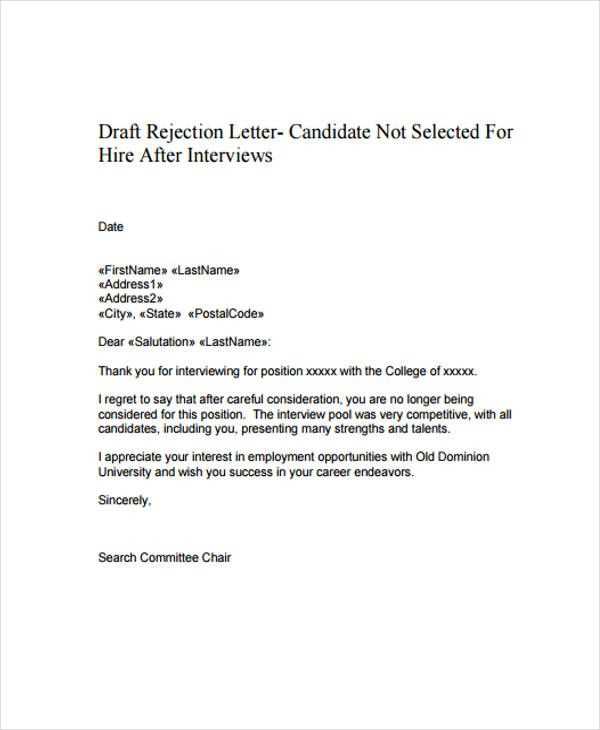
Crafting a rejection letter after an interview is straightforward when you keep it clear and respectful. Start by thanking the candidate for their time and effort during the interview process. Acknowledge the value they brought to the conversation, even if they weren’t selected for the position.
Next, be direct about the decision while maintaining a positive tone. Let them know that while their qualifications were impressive, you’ve chosen another candidate for the role. This part of the message should be simple and honest.
Finally, offer encouragement for their job search. You can mention that you will keep their details on file for future opportunities, leaving the door open for potential future engagement. Always end the letter with a polite closing, reinforcing that you appreciate their interest in the role.
Template for Rejection Letter After Interview
Begin by expressing gratitude for the candidate’s time and effort in attending the interview. Follow this with a clear but polite notification about the decision.
Here’s a structured template to follow:
| Section | Content |
|---|---|
| Subject | Rejection of Application – [Job Title] |
| Greeting | Dear [Candidate Name], |
| Opening Statement | Thank you for interviewing with us for the position of [Job Title]. We appreciate the time you spent with us. |
| Decision | After careful consideration, we have decided to move forward with another candidate who more closely matches our current needs. |
| Closing Statement | We will keep your information on file for future openings and encourage you to apply again for other roles that may be a better fit. We wish you all the best in your job search. |
| Sign-off | Sincerely, [Your Name] |
Keep the tone respectful and leave room for potential future opportunities. This approach ensures professionalism while maintaining a positive relationship with the candidate.
Choosing the Right Tone for Your Message
Maintain a respectful and professional tone, even if delivering disappointing news. Focus on being clear and polite, while expressing appreciation for the candidate’s time and effort.
- Be direct but kind: Avoid vague phrases that might confuse the recipient. Clearly state the decision without unnecessary details. A straightforward approach, paired with a respectful tone, works best.
- Avoid sounding too formal or distant: Keep your language warm and personable. Balance professionalism with a human touch to make the recipient feel valued.
- Express gratitude: Thank the candidate for their interest and effort during the interview process. Acknowledge the time they invested in preparing and participating.
- Be brief, yet clear: Deliver the message concisely without over-explaining. The focus should be on the decision, with just enough context to ensure clarity.
Ensure your tone conveys empathy and respect, even if the decision is not what the candidate hoped for.
Key Components to Include in a Rejection Letter
Be clear and direct from the start. A rejection letter should explicitly inform the candidate that they were not selected for the position. This helps avoid confusion and sets clear expectations.
Gratitude for Their Time
Start by thanking the candidate for their time and effort during the interview process. Acknowledge the specific effort they put into preparing, which adds a personal touch to the message. Expressing appreciation sets a positive tone.
Reason for the Decision
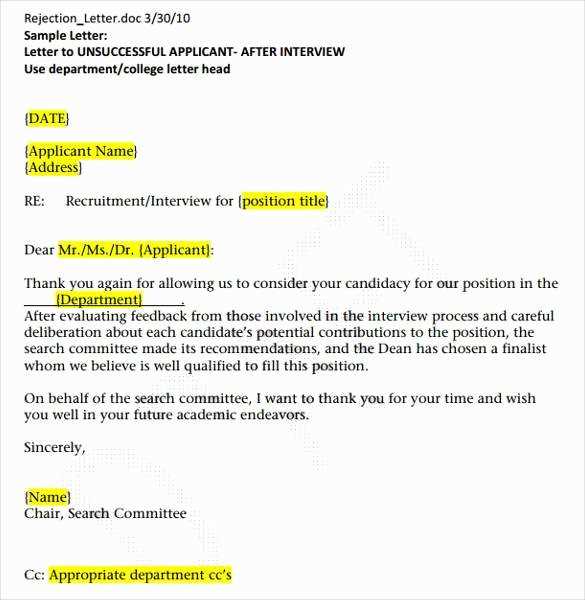
Provide a brief, constructive reason for the decision. You don’t need to go into great detail, but explaining why they weren’t selected can help the candidate understand your choice. For example, mention if another candidate had more experience or a different skill set that better aligned with the role.
Offering feedback, when appropriate, can help the candidate improve for future opportunities. Keep the tone neutral and supportive, focusing on growth and development.
Conclude by wishing the candidate success in their job search. Encouraging them to apply for future roles within the company fosters goodwill and leaves the door open for future engagement.
How to Express Appreciation for the Candidate’s Time
Start by thanking the candidate for their time and effort throughout the interview process. Recognize that they dedicated valuable time to meet with you, which reflects their interest in the opportunity.
Be Specific and Genuine
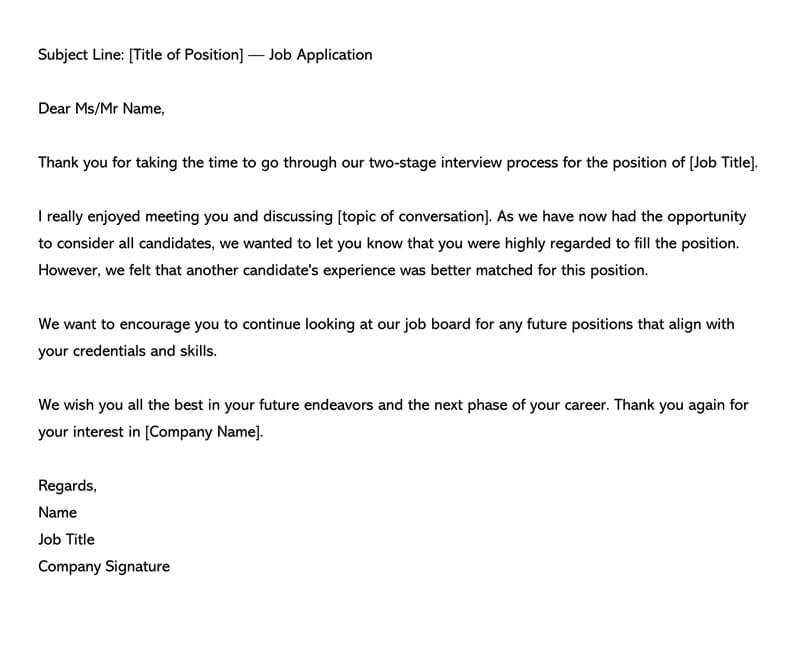
Refer to specific moments in the interview that stood out. Whether it was their insightful questions, thorough understanding of the company, or their experience relevant to the role, acknowledging these details shows that you truly appreciated their contribution.
Offer Gratitude for Their Effort
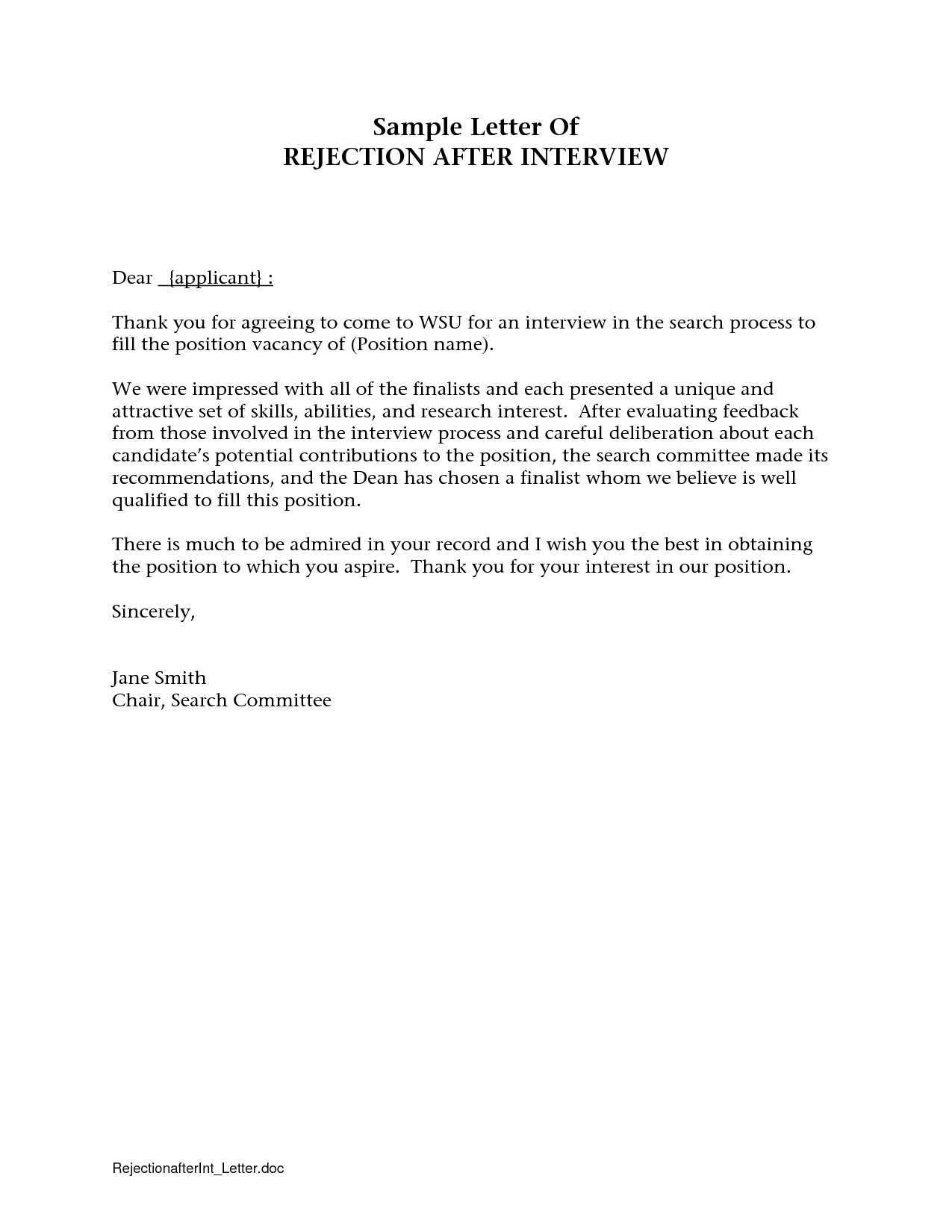
Express genuine appreciation for the time spent preparing for the interview. Acknowledge that preparing for interviews requires significant effort and mention how much you value their interest in your organization.
Communicating Your Decision Clearly and Professionally
Be direct and concise in your message. Acknowledge the candidate’s effort and time, and express your appreciation for their interest in the role. Clearly state your decision without ambiguity to prevent misunderstandings. Keep the tone respectful and considerate throughout the message.
Crafting the Message
Start by thanking the candidate for their participation. Acknowledge their qualifications and experience, but make it clear that you’ve chosen to move forward with another candidate. Avoid lengthy explanations or justifications, as they may complicate the message.
Ending on a Positive Note
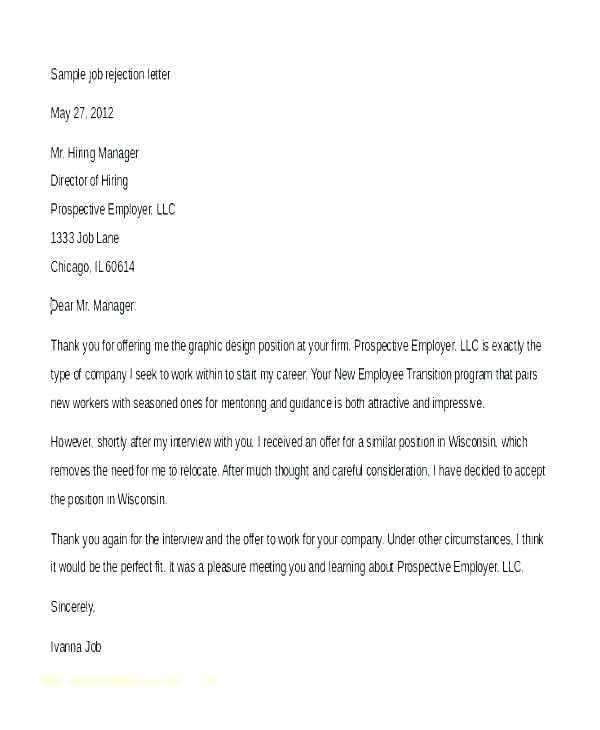
Invite the candidate to stay in touch for future opportunities. Let them know their application was carefully reviewed, and wish them success in their job search. This keeps the door open for future interactions and helps maintain a positive relationship.
Offering Constructive Feedback Without Being Negative
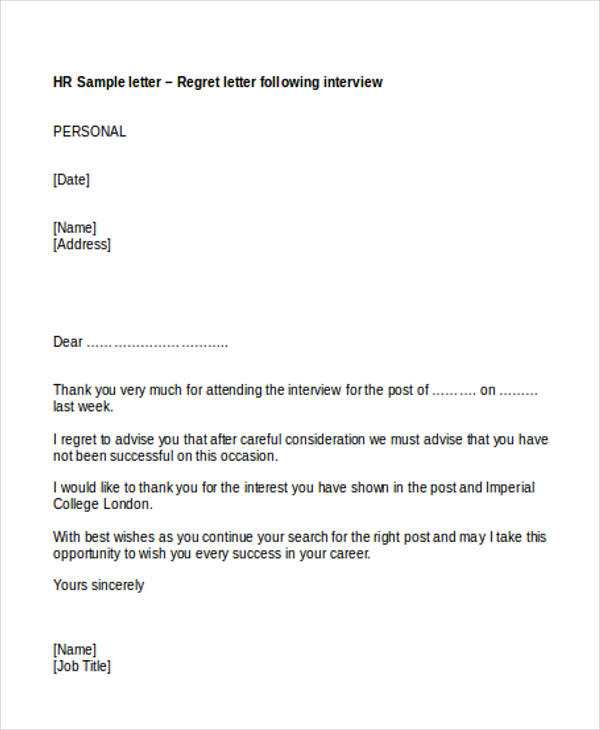
Be clear and specific when offering feedback. Focus on particular aspects of the interview or skills, rather than general impressions. For example, instead of saying “You need to improve,” state, “You could enhance your presentation skills by practicing more with visual aids.” This makes the feedback actionable and avoids sounding discouraging.
Offer suggestions for improvement that are achievable. For example, suggest a training course, books, or techniques that can help them strengthen a specific area. Frame it positively, such as, “Improving your time management could increase your efficiency, and there are several tools available that could assist you in this.” This allows the candidate to see a clear path forward.
Use “I” statements to communicate that the feedback reflects your perspective. For instance, “I felt that your answers lacked detail in the technical portion, which might make it harder for others to understand your approach.” This softens the critique and places the responsibility on your perception rather than the candidate’s ability.
End with encouragement. Reinforce their strengths and acknowledge their effort. A closing like, “Your enthusiasm for the role was evident, and we appreciate the effort you put into the interview” helps leave them with a sense of value, even when delivering constructive criticism.
Ensuring Legal and Ethical Considerations in Your Response
When writing a rejection letter, ensure your message is clear, respectful, and legally sound. Avoid discriminatory language or any statements that could be interpreted as biased. Focus on professionalism and clarity in every sentence.
Respect Privacy and Confidentiality
Do not share personal information about the candidate without their consent. If the candidate has shared sensitive details during the interview, such as medical information or personal matters, make sure this is not mentioned in the letter. Protecting their privacy is paramount and should always be a priority.
Be Honest but Tactful
Provide clear, honest feedback if needed, but avoid harsh or overly critical language. It’s important to give constructive comments without making the recipient feel disqualified. You can explain that another candidate was a better fit for the role without disparaging their skills or experience.
Keep the tone positive, offering encouragement for future applications. This creates a respectful atmosphere and leaves the door open for future opportunities, should the situation arise.